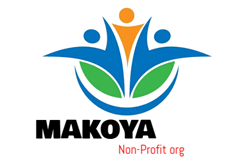Imagine earning money while you learn. This dream is becoming a reality for more and more students. Higher education can be a big financial burden, but paid study programs offer a smart way to get your degree. They help ease the worry about tuition, books, and daily living costs.
So, what exactly does “get paid to study” mean? These programs often include stipends, bursaries, and scholarships with money for living. They might even involve paid internships linked to your school work. The best part for many is the monthly stipend, which gives you regular cash flow.
This article is your complete guide to finding these valuable chances in South Africa. You’ll learn where to look, what you need, and how to apply. Get ready to find your path to a funded education.
Understanding Paid Study Opportunities in South Africa
What are Stipends and How Do They Work?
A stipend is a fixed amount of money paid regularly, usually for a specific goal like studying or doing research. It is different from a regular salary. Stipends help students cover their living costs while they focus on school. In South Africa, these amounts can vary a lot, from a few thousand rand to over ten thousand rand per month, depending on the program and level of study.
Many different groups offer stipends. These include government departments, research councils, and universities. You can also find them from private companies and non-profit groups looking to support talent.
Types of Paid Study Programs Available
Bursaries with Living Allowances
Many bursaries in South Africa go beyond just covering your tuition. Some also give you a monthly stipend. This money helps with your rent, food, transport, and other important living expenses. They truly make studying much easier.
Research Assistantships/Teaching Assistantships
Universities often have spots for students to work as research or teaching assistants. You get a monthly stipend for helping professors with their research projects or supporting undergrad classes. This experience also builds valuable skills.
Internship and Traineeship Programs
Companies frequently offer internships or traineeships that come with a monthly stipend. These programs let you get real-world work experience in your field of study. They are a great way to learn on the job and earn money at the same time.
Scholarships with Stipends
Some very good scholarships offer a full package. This usually means your tuition, books, and a helpful monthly stipend. These are often for high-achieving students and support their entire academic journey.
Eligibility Criteria: Who Can Apply?
Academic Requirements
To get into these programs, you usually need good grades. Most will ask for a minimum GPA or specific marks in certain subjects. This shows you are serious about your studies. You might also need certain subject knowledge depending on the program.
Useful Links:
Many paid study options focus on particular fields. These are often areas where skills are needed, like science, technology, engineering, math (STEM), health sciences, or even some humanities fields. Checking if your field is a priority is smart.
Citizenship and Residency
Most programs target South African citizens or those with permanent residency. Some specific funds might be for students from certain provinces or regions. International students can find opportunities, but they are often fewer and have different rules. Always check the nationality requirements carefully.
Other Potential Criteria
Some programs consider if you truly need financial help. They want to make sure the money goes to those who can benefit most. Showing strong motivation and commitment to your studies is also key. Your personal statement can really make a difference.
A few programs might ask you to work for the company or organization after you graduate. This is called a “work-back agreement.” You get funding now, and they get your skills later. Be sure to understand any such terms.
How to Find and Apply for Paid Study Programs
Leveraging Online Resources
Where should you start your search for funding?
Government websites and Sector Education and Training Authority (SETA) portals are also goldmines. SETAs offer learnerships and bursaries in various industries. These are official sources you can trust. Plus, many dedicated bursary websites and job boards in South Africa pull all these chances together. They save you a lot of time searching.
Networking and Direct Applications
Looking beyond general websites can also help. Professional groups related to your field might list opportunities. Big companies often have “careers” or “learnership” sections on their own websites. Check these pages regularly for new postings.
Attending information sessions and career fairs is a smart move. Many sponsors go to these events to find new talent. You can meet people and learn about programs directly.
Crafting a Winning Application
Make your application stand out. Always tailor your CV and cover letter for each program. Show how your skills and experiences fit what they are looking for. Avoid generic applications.
Your personal statement, or motivation letter, is very important. Use it to share your goals and passion for your chosen field. Explain why you are the best fit for their support. Let your enthusiasm shine through.
Gather all your papers early. You’ll likely need your academic transcripts, a copy of your ID, proof of where you live, and letters of reference. Having these ready prevents last-minute stress.
Key Sectors Offering Paid Study Opportunities
Government and Public Service
Many government departments in South Africa want to grow local talent. Departments like Health, Education, Public Works, and Science and Innovation often fund studies. They want to train future employees in their specific areas. These can lead to jobs after you finish studying.
For example, some departments have special bursary programs that support students. These often focus on skills that the public sector needs most. They help fill important roles in the country.
Corporate and Private Sector
Large South African companies and international firms operating here frequently offer paid study programs. Think about big names in mining, finance, telecom, manufacturing, and energy. They often have learnerships, bursaries, and paid internships. These companies invest in future employees.
Their programs help build a skilled workforce for their industries. This means excellent chances for students in fields like engineering, accounting, IT, and business management.
Research and Academic Institutions
Universities and research councils are big funders, especially for those pursuing higher degrees. If you want to do postgraduate studies or research, these institutions are key. They often have assistantships or specific grants.
The National Research Foundation (NRF) in South Africa, for example, gives out lots of funding for master’s and PhD students. They support research in many areas. This helps grow new knowledge and experts.
Making the Most of Your Paid Study Experience
Balancing Study and Stipend Responsibilities
Getting paid to study means you have responsibilities. You need to manage your time well between classes, assignments, and any program duties. Keep your grades up and meet all deadlines. This shows you are serious and can handle the demands.
Also, actively engage with your sponsor. Learn from them and ask questions. This helps you grow professionally and build a good name for yourself. Don’t just take the money; make the most of the learning too.
Future Career Prospects
These programs are more than just money now. They can open doors to jobs after you graduate. Many lead straight into employment with the sponsoring company. This gives you a clear career path.
Building a strong professional network is another huge benefit. Connect with people at your sponsoring organization and in your field. These contacts can be very helpful for your future career.
Conclusion: Your Path to a Funded Future in South Africa
Paid study programs are a real game-changer for many students in South Africa. They offer financial support through monthly stipends, letting you focus on your education. Remember to check if you meet the eligibility rules, and then search smart. Use online tools, network, and always craft a strong application. Beyond the money, these programs give you valuable experience and boost your future job chances. Don’t wait; start your research today and apply for these competitive opportunities!

